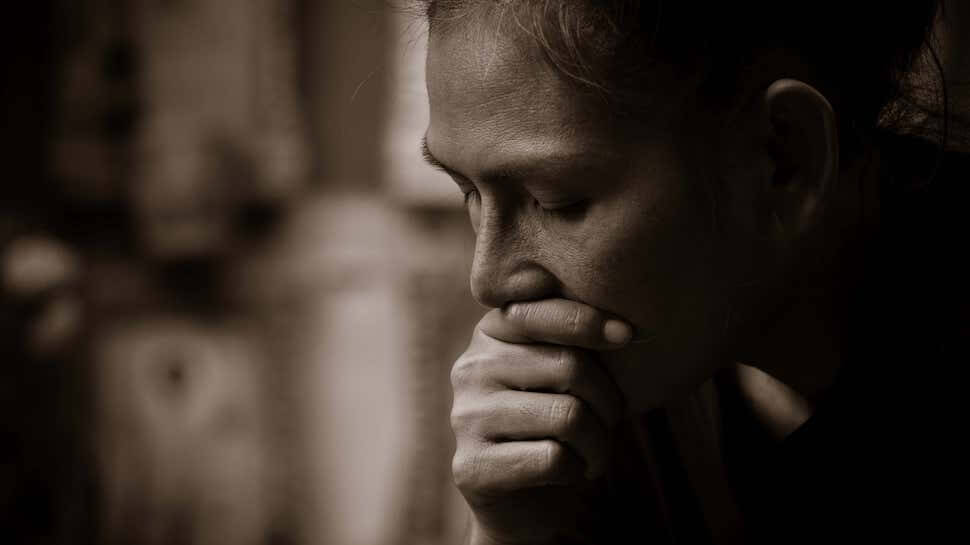
What Are the Signs of Complicated Grief Disorder?
Complicated grief disorder, which is also known as complicated bereavement disorder, keeps sufferers trapped in their pain and sense of loss after the death of someone they love. Grief is a normal human emotion, but it should be transitory, and when it becomes chronic and debilitating people experiencing it may need mental health treatment. With professional assistance, even the worst feelings of grief can be resolved and its most disabling symptoms overcome.
The loss of a loved one is a traumatic event. But over time healing and acceptance are expected to occur, and if they don’t it is a sign of trouble that should not be ignored.
People who suffer from complicated grief disorder cannot escape feeling lost, alone, and devastated. Grief becomes their constant companion, and at that point they need expert assistance from mental health professionals who understand the difference between healthy and dysfunctional bereavement.
Complicated grief disorder is not currently a recognized mental health disorder. In the latest edition of the Diagnostic and Statistical Manual of Mental Disorders (DSM-5), it is listed as a “Condition for Further Study.” But regardless of its official status, complicated grief, which is also known as complicated bereavement, is a real condition, and those who suffer from its debilitating effects need help and understanding.
Risk Factors for Complicated Grief
The deep sadness that people feel after the death of a loved one is a universal experience. Grief can hang over people who’ve lost someone like a cloud, for weeks or months, before they are ready to accept their loss and move on.
But in some cases, the process of recovery from grief stalls. Sufferers are unable to move forward or resolve their feelings. Their sense of sadness deepens, and daily living is severely disrupted by their absorption in mourning.
Estimates are that between 10 and 20 percent of those who lose a loved one will experience an extended period of complicated bereavement. The risk factors for developing the disorder include:
- Experiencing more than one death within a short period of time
- Being highly dependent on the individual who passed away
- Deaths that are shocking, premature, and unexpected
- Witnessing the death, or suffering alongside the deceased person if they died following a protracted illness
- Previous history of mental illness, especially depression and PTSD
- Suffering from a substance use disorder
At any given time, about six in 10 Americans will have experienced the loss of a loved one. Eventually everyone will experience this form of trauma, which means complicated grief is likely to touch every family at some point. When death occurs, family members should watch out for each other even as they mourn their lost loved ones, and if anyone shows signs of continuous and deepening grief they should be encouraged to seek help from a qualified mental health professional.
Are You Struggling with the Loss of a Loved One?
Our Caring Staff is Here to Help
Complicated Grief Signs and Symptoms
In the first two to three months after a loss, the symptoms of complicated bereavement will be almost impossible to detect. At this stage, the symptoms of grief are expected to be pervasive and intense, and deep grieving is not necessarily a sign of emotional and psychological imbalances.
But if the grief seems to intensify as more time passes, or persists for six months or longer, complicated grief may have developed.
The signs of complicated grief include:
- Obsession with the departed person, expressed through speech and behavior
- Deep, unbearable sadness that never seems to lift
- Pessimistic expressions of doom, gloom, and despair about life in general
- Irritability and a hair-trigger temper that makes the person difficult to communicate with
- Sleeping problems (insomnia, or sleeping at odd hours)
- Lack of attention to grooming and personal appearance
- Refusing to leave the home
- Persistent anger and bitterness toward the world
- Withdrawal from social interactions and activities the individual used to enjoy
- Denial and defensiveness when asked about the grief
- Distracted performance on the job, or an inability to engage with or take interest in others
- Worsening of any preexisting mental health conditions (depression, PTSD, anxiety disorder, substance abuse, etc.)
- Strong attachment to mementos and reminders of the departed person or, conversely, a strong aversion to those reminders
- Inability to manage daily affairs in a wide range of contexts (work, school, financial, parental, etc.)
- Behavior that seems reckless, impulsive, or potentially self-destructive
- Talk of suicide, or actual suicide attempts
Beyond a certain point none of this is healthy or normal (thoughts of suicide are always alarming), and it would be a mistake to assume the grief will fade with time.
While it is understandable that friends and family might want to help an individual showing signs of complicated grief, working alone they won’t make much of a difference. The person can benefit from the support of loved ones, especially if they’ve been a bit far away since the loss. But people suffering the symptoms of complicated bereavement need therapy first and foremost, and the longer they go without it the longer their heartbreak will continue.
Diagnosing Complicated Grief
Despite not being a clinical disorder, complicated grief is recognized as a serious condition by mental health professionals. Nevertheless, without official sanction no firm and fast diagnostic scheme can be instituted, leaving diagnosis standards for complicated grief disorder open to interpretation.
However, there has been quite a bit of research on this topic carried out by interested parties, and from the data collected diagnostic criteria have been proposed.
In one influential 1997 study, a team of mental health professionals, writing in the Journal of American Psychiatry, recommended a seven-trait diagnostic standard for complicated grief disorder. Their proposal was based on their research into the reactions of spouses who’d lost their partners and afterward experienced significant periods of grief.
By comparing grief symptoms experienced after six months and 14 months, they identified seven symptoms (out of 30 studied) that remained strongly present in a subset of study subjects, all of whom seemed to be grieving continuously for far longer than expected.
Those seven distinctive symptoms of complicated grief included:
- Intrusive memories or fantasies about the deceased loved one
- Strong pangs of emotion related to the lost relationship
- Powerful yearnings or wishes that the departed person was still present
- Intense feelings of loneliness or emptiness
- Avoidance of people, places, or activities that remind the grief sufferer of the deceased
- Recurrent sleep interference and disturbance
- Significant loss of interest in work, social, personal, or recreational activities
The researchers asserted that experiencing three of these seven symptoms over any one-month period, 14 months or more after the death, should be sufficient to make a complicated grief diagnosis.
Most mental health experts now agree that six months of unrelenting grief is enough to establish the presence of complicated grief, and that 14 months is too long to wait before seeking treatment. Additional defining symptoms have also been included in more recent lists suggesting criteria for diagnosis.
But even in these newer proposals, the telltale signs of complicated grief uncovered in the 1997 study have been retained, and experiencing three or more distinctive symptoms in a one-month period is still the preferred requirement for a complicated bereavement disorder diagnosis.
In the end, mental health professionals may still use some degree of discretion when evaluating people for unhealthy bereavement. But research has helped clarify the specifics of complicated grief, making it easier for psychiatrists and psychologists to recognize complicated grief disorder when it is present.
Call for a Free Confidential Assessment.
877-727-4343Treatment and Recovery from the Symptoms of Complicated Grief
As a deeply painful and disabling condition, complicated grief disorder is a life-altering problem that requires active intervention.
Mental health treatment professionals can help sufferers begin the healing process and see it through to a satisfying conclusion, and this is especially true for bereavement sufferers who seek inpatient treatment at a residential mental health facility.
Inpatient treatment programs for complicated grief generally include:
- Extensive individual, group, and family therapy. Individual therapy can help patients work through their grief and restart the stalled recovery process. Group therapy connects sufferers with others experiencing the same paralyzing emotions, which creates a compassionate, constructive environment for shared healing. Family therapy can help complicated grief sufferers reconnect with loved ones who understand their feelings and are ready to offer unconditional support.
- Treatment services for co-occurring disorders. Depression and PTSD are especially common among complicated grief sufferers, and anxiety disorders are also quite frequently diagnosed. People who attempt to cope with their feelings of grief may turn to drugs and alcohol, substantially increasing their risk of substance abuse, which may require specialized treatment at a facility that treats addiction and co-occurring disorders. Regardless of the conditions involved, all mental and behavioral health symptoms must be addressed in treatment if true recovery is to occur.
- Medication management. There are no medications recommended specifically for complicated grief, but they may be prescribed to help patients manage the symptoms of co-occurring disorders.
- Holistic mind-body therapies. Practices like yoga, meditation, art and music therapy, wilderness training and adventures, biofeedback, massage therapy, and acupuncture can help restore emotional balance, reduce stress, and teach mindfulness techniques that can help grief sufferers refocus their mental energies and control their tendency to lapse into unproductive thinking patterns.
- Transition to continuing care/aftercare. Men and women suffering from complicated bereavement may require ongoing therapy and regular peer group support to complete their process of recovery.
The idea behind complicated grief treatment is not to make patients forget their loved ones, or to make their pain and sense of loss disappear completely. That would not be possible, nor would it be wise since grief can continue to cause problems if it is repressed.
Instead, treatment for complicated grief is designed to help sufferers find resolution and acceptance. Therapists will help them learn to manage their feelings and move on with their lives, as they continue to honor the memories of their departed loved ones.





